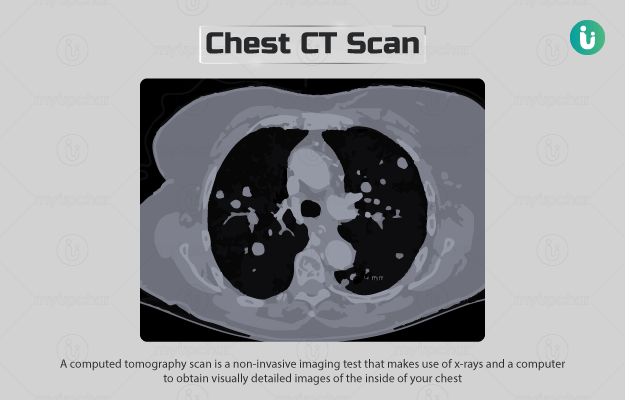A computed tomography scan or a CT scan is a non-invasive imaging test that makes use of x-rays and a computer to obtain visually detailed images of the inside of your chest. A CT scan gives more detailed images of soft tissues and internal organs, especially of the blood vessels and soft tissues, as compared to traditional X-ray scans.
During a CT scan of the chest, the x-ray beam moves in a circle around your body to produce multiple images of the inside of your chest. These images appear on a monitor to detect any abnormalities. You may be given a contrast dye during the test to help see more clear images of certain parts of your chest.








































